Women's Empowerment
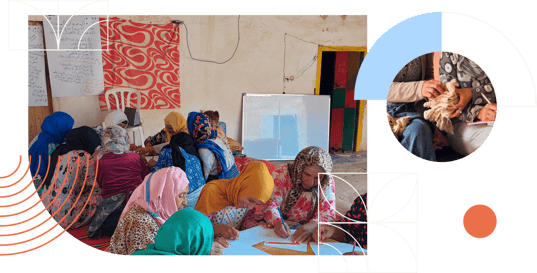
We place women’s empowerment at the center of our projects, supporting their development as leaders able to imagine and implement a pathway to social and economic vitality.

We place women’s empowerment at the center of our projects, supporting their development as leaders able to imagine and implement a pathway to social and economic vitality.
We believe that supporting and empowering women is a crucial first step to all community development. Our projects typically start with a community IMAGINE workshop that encourages and equips women to have emotionally healthy discussions that expand their confidence and self-agency while identifying personal goals and priorities.
In addition to our IMAGINE workshops, our Cooperative Building programs provide women with business knowledge and opportunities across agricultural and artisanal markets. Our Legal Clinic program provides free clinics designed to educate Moroccan women on their rights.
We believe that empowering women empowers families. This perspective drives our Family Literacy program. Going beyond women’s empowerment, this program addresses the literacy and numeracy needs of rural women, girls, and young children. The program also incorporates early childhood development and parenting classes.

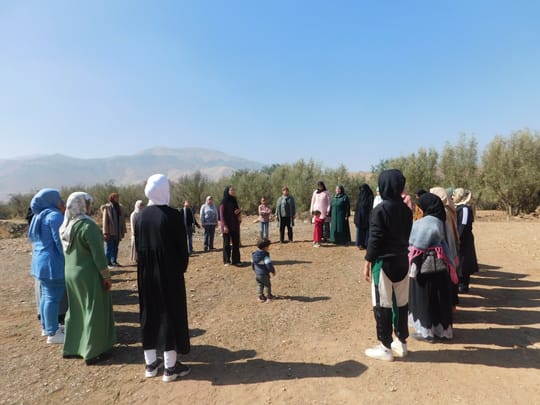
We begin every community development project with a women’s empowerment workshop facilitated by Moroccan women. These workshops aim to expand capacity by identifying personal priorities and goals. Since 2017, we have conducted over 230 IMAGINE workshops in 26 provinces with over 5,000 women.
These interactive workshops, led by highly trained facilitators, provide a clear pathway for women to grow as leaders of their communities, helping them develop and implement strategies for economic, social, and environmental vitality.

Our group psychosocial therapy fosters resilience and equips people with strategies for emotional and mental recovery. Through various activities and discussions, the workshop helps people rebuild a sense of self in the wake of grief and disaster. It is a crucial first step toward the work of rebuilding lives and livelihoods.

After IMAGINE empowerment workshops, many participants choose to launch cooperatives in their communities as a financial stimulus and social network. We come alongside these women to support cooperatives, often bringing in expert volunteers to provide training and problem-solving.
Following our philosophy of community-led sustainable development, cooperatives are planned and implemented by the women of the community. Many of the cooperatives choose to focus on agriculture, building fruit tree nurseries for local sale and distribution. The result is value-added products and processing, artisan crafts, and textile production that they are able to take to market.
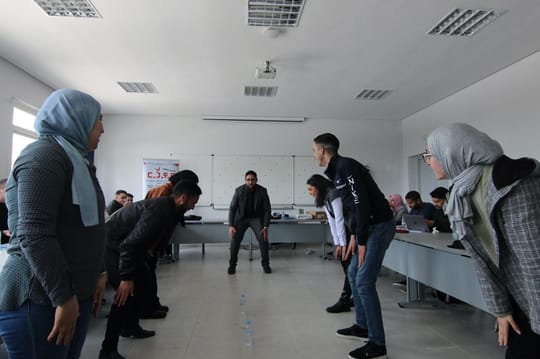
The Legal Clinic program initiates collaboration between Moroccan universities and underserved communities to increase equitable access to legal information, legal aid, and socio-economic integration in marginalized communities, specifically among women, youth, migrants, refugees, asylum-seekers, and survivors of trafficking.
Since the beginning of the program in 2009, our Legal Clinics have worked with 8 Moroccan universities, establishing 2 legal aid clinics in Fes and Marrakech. We are now launching the third iteration of the program in Oujda.

Supported through the European Union’s EuropeAid initiative, our Family Literacy program grew out of community meetings where women collectively identified education and capacity-building as a main priority. The program has provided women in Beni Mellal, Khenifra, Fquih Ben Saleh, Azilal, Al Haouz, Rhamna, Chichaoua, and Essaouira with literacy classes, empowerment workshops, and technical skills training.
Discover the benefits of our programs.

Learn about how our women’s empowerment programs have benefitted people, families, and communities.
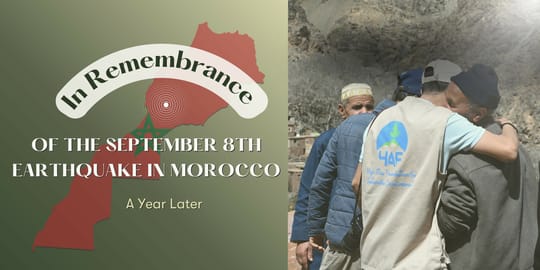
As the one-year anniversary of the September 8th earthquake nears, the High Atlas Foundation (HAF) alongside community partners will come together to honor the painful losses, the healing, and the collective rebuilding with one and all here in Morocco, and around the world.
Get more in-depth information about this program.
High Atlas Foundation supports a variety of sustainable development projects within Moroccan communities that may interest you.
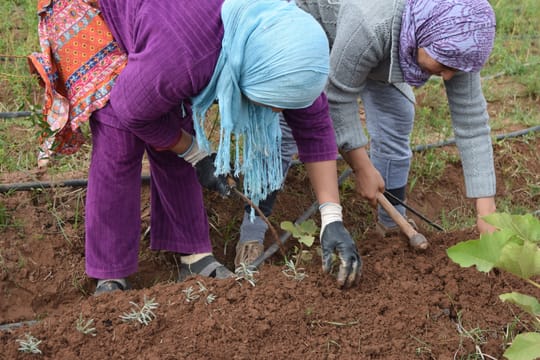
We invite you to be part of a new era of sustainable development across Morocco. Explore additional ways to become involved in our work.